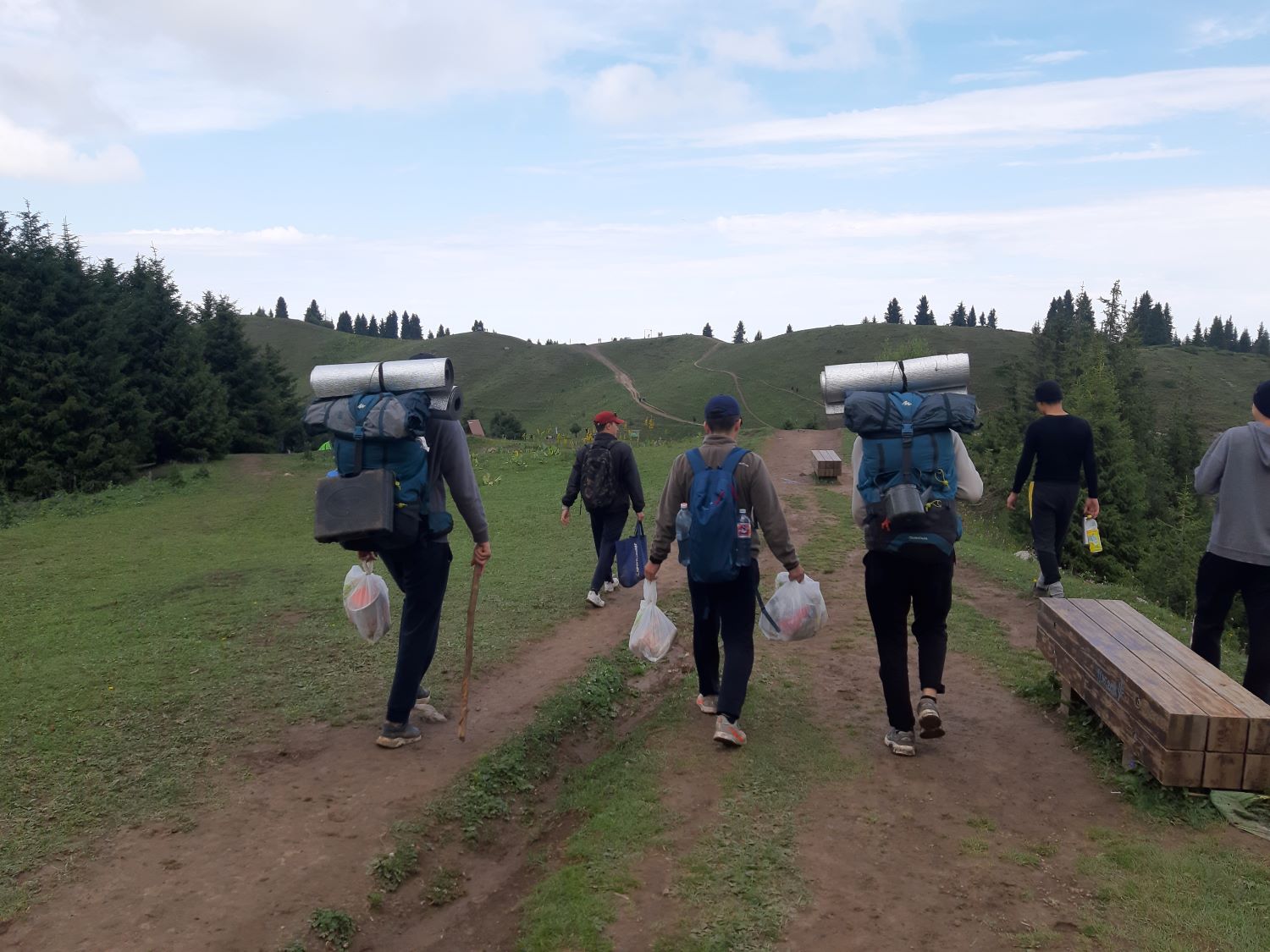By Sergey Solyanik, Central Asia Advisory Board Coordinator

In 2023, Global Greengrants Fund officially launched a new Central Asia Advisory Board to support, preserve, and develop environmental movements in Kazakhstan, Kyrgyzstan, Tajikistan, and Uzbekistan. In the board’s first year of pilot grantmaking, it awarded $250k to 35 groups across the region.
Central Asia—made up of Kazakhstan, Kyrgyzstan, Tajikistan, Turkmenistan and Uzbekistan—has historically been a crossroads where people, goods, and ideas from different parts of the Eurasian continent have converged. The region still plays an important geopolitical role today, and economically, has become an important source of raw materials. However, the development of extractive mining in the region has led to the destruction of the natural environment, intense pollution, and an increase in human rights violations. Desertification and loss of biodiversity are also intensifying in the region, as are droughts and melting glaciers.
Under the current political conditions, financial support for environmental initiatives is either difficult or simply impossible to access except through international funds. Yet supporting environmental initiatives is not a priority for most international donor programs in the region.
Given this context, Global Greengrants Fund concluded that targeted funding for environmental organizing in the region could make a significant difference. Not only would it foster and support fair public participation in protecting the rights to a healthy environment, but it would also provide support to groups centering the active participation of women, youth, and people with disabilities.
Before its official formation as a Global Greengrants advisory board, we conducted a pilot grantmaking program from January to June 2023. We recruited experts who have many years of experience in the region’s environmental movement to assist with grantmaking decisions. We also issued an open call, inviting environmental justice groups from across the region to apply. Of the 155 applications received, the Board was able to support 35 projects with a total of $250k. Grants awarded focused on educating people about environmental justice and climate change, implementing biodiversity conservation and agroecology practices, tackling waste collection and disposal issues, and more.
Examples of projects supported during the pilot grantmaking phase include:
- Development of a climate network in Central Asia, one of the results of which was the consolidated participation and performance of network members at COP28, for the first time in the history of the region.
- A successful lawsuit against the city administration of Almaty in Kazakhstan, which will help protect the Ile-Alatau national park near Almaty.

After a very successful pilot program, Global Greengrants concluded that creating a long-term Central Asia Advisory Board would benefit environmental movements in the region. As the Board begins its next grantmaking cycle, it is committed to ensuring that applicants have the support needed in applying for grants. This includes providing more information about the program and editing the application forms and review process to make them easier to use. The Board plans to focus its efforts on supporting groups that champion public environmental interests in response to the rising official pressure and targeting of environmental work in the region. In line with Global Greengrants Fund’s commitment to intersectional environmental justice, the Board also plans to better support the leadership of women, youth, and people with disabilities in its grantmaking.
Currently, Global Greengrants is one of the only international funds providing support to environmental justice groups in Central Asia, making our continued support in this region pivotal. The Central Asia Board will need to keep abreast of the needs, opportunities, and risks faced by the environmental community in each country to ensure we are holistically supporting movements for climate justice in the region. As part of this holistic approach, the Board hopes to develop and launch a training and capacity-building program for environmental defenders and NGOs, which will also strengthen the connections and collective organizing between grassroots groups both within the region and with colleagues outside of it. Moving forward, the Board is committed to advocating for additional financial resources to flow into Central Asia, both from Global Greengrants and from philanthropy more generally, with the intention of bolstering the resilience and impact of environmental justice movements in Central Asia.
